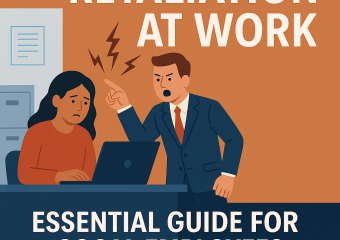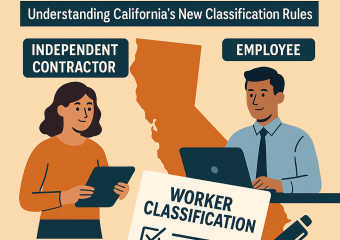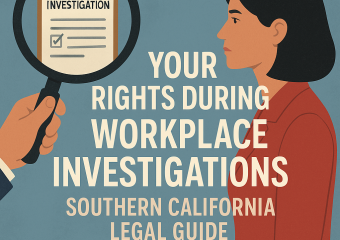Los Angeles Labor Law Updates: New Protections for Remote and Hybrid Workers
Los Angeles Labor Law Updates are pivotal in addressing the evolving workplace dynamics driven by the increasing trend of remote and hybrid work models. As businesses and employees adapt to new ways of working, legislative bodies are recognizing the need to update existing laws to ensure comprehensive protection for all types of workers. The recent amendments specifically aim to create a fair and equitable working environment, whether employees are in the office, at home, or splitting their time between both.
Understanding the Scope of the New Laws
The changes to labor laws in Los Angeles reflect a growing understanding of the unique challenges and needs of remote and hybrid employees. These modifications are designed to tackle issues such as work-life balance, digital security, compensation, and rights to disconnect.
A significant aspect of the updated regulations is the enhancement of privacy protections. With home being the new office for many, there is a fine line between work hours and personal time. New policies have been instituted to respect this boundary, prohibiting employers from mandating constant connectivity or surveillance outside of agreed work hours.
Compensation and Benefits Adjustments
Equity in compensation and access to benefits has also been a major focus of the recent legislative updates. Remote and hybrid workers often face uncertainties about eligibility for certain benefits traditionally designed for onsite employees. The updated laws ensure that remote workers receive the same health benefits, bonuses, and allowances as their onsite counterparts.
Moreover, these regulations clarify compensation for expenses that are unique to remote work, such as home office setups, internet costs, and utilities that support work activities. Employers must now either provide the necessary equipment directly or compensate employees for these expenses, ensuring that workers are not financially burdened by the requirements of their job roles.
Health and Safety Standards Extended to Home Offices
Another crucial aspect of the Los Angeles Labor Law Updates is the extension of occupational health and safety standards to remote environments. Just as employers are responsible for the physical safety of their onsite employees, they now must ensure that remote workspaces meet specific health and safety criteria. This includes providing guidance on ergonomic setups and addressing any potential hazards that could lead to injury.
Regular assessments and trainings are mandated to help remote workers create a safe and healthy work environment at home. These measures are critical not only for the physical well-being of employees but also for their mental health, as a well-structured workspace can significantly reduce stress and enhance productivity.
Flexibility and the Right to Disconnect
Recognizing the blurring lines between personal and professional life in remote settings, one of the most applauded aspects of the updates is the introduction of the “right to disconnect.” This policy empowers employees to mute work-related communications outside of work hours without the fear of repercussions. It aims to prevent burnout and support mental health by encouraging a healthier work-life balance.
Flexibility in work hours has also been addressed. While remote and hybrid work models inherently allow for a more flexible schedule, the legal framework now explicitly supports asynchronous work, where the focus is on completing tasks rather than being available during specific hours. This adjustment acknowledges diverse personal circumstances and promotes inclusivity.
Legal Support and Dispute Resolution
The updated labor laws include provisions for increased legal support for remote and hybrid workers facing discrimination or unfair treatment. There is a more straightforward process for addressing grievances and disputes, with a focus on mediation and arbitration to resolve issues efficiently and fairly.
Conclusion
The Los Angeles Labor Law Updates serve as a comprehensive response to the shifting landscape of work. By safeguarding the rights and well-being of remote and hybrid employees, Los Angeles is setting a precedent for other regions to follow. These changes not only promote a more inclusive and fair working environment but also support the productivity and satisfaction of the workforce, contributing to a healthier overall economy. The commitment to adapting legal protections to fit the modern work modalities marks a significant step forward in labor law.
In conclusion, as the world of work continues to evolve, so too must the laws that govern it, ensuring that all workers, regardless of their location, are supported and protected under the law.




